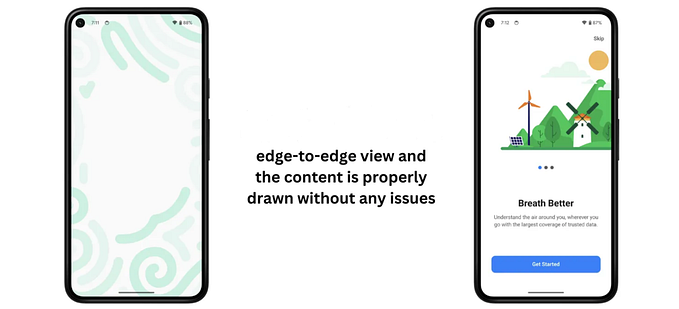Don’t Ever Get Stuck As An Android Developer (Part 2)

Hi there! welcome to the second and concluding part of the article. If you haven’t read the first part, find it here https://link.medium.com/orWZ1WnMl0. Thanks to everyone who applauded the article, I see it was quite helpful and I’m excited. Here in part 2, I will be revealing even more interesting resources and ways to help yourself out when you need help. You’re in for an amazing journey. Let’s ride!!!
Next on the list is…
Code Samples in the Android Studio
Android Studio and the Android documentation provide many code samples that you can study, copy, and incorporate with your projects. The samples are basically meant to be a starting point for further development. Endeavor to design and build your own ideas into them. To access these samples, follow these steps:
- In Android Studio, choose File > New > Import Sample
- Browse the samples.
- Choose a sample and click Next.
- Accept the defaults and click Finish.
The Android Developer blog
The Android Developers Blog provides a wealth of articles on Android development. Get acquainted with this blog and your coding life will not remain the same anymore.
Other sources of information
Google Developer Training: Whether you’re new to programming or an experienced developer, Google offers a range of online courses to teach you Android development, from getting started, to optimizing app performance. Click the Android tab at the top of the page.
Google I/O Codelabs: Google Developers Codelabs provide a guided hands-on coding experience on a number of topics. Most codelabs will step you through the process of building a small app, or adding a new feature to an existing app. Select Android from the Category drop-down menu on the right side of the page.
Android Testing Codelab: This codelab shows you how to get started with testing for Android, including testing integration in Android Studio, unit testing, hermetic testing, functional user interface testing, and the Espresso testing framework.
Google Testing Blog: This blog is focused on testing code. Popular posts you can check out on this blog include:
Stack Overflow: Stack Overflow is a community of millions of programmers helping each other. If you run into a problem, chances are someone else has already posted an answer on this forum. Searching on Stack Overflow using tags can help your life immensely; it helps you find direct answers without delay. For example, if you type [android] in the search box, the [] brackets indicate that you want to search for posts that have been tagged as being about Android. You can combine tags and search terms to make your search more specific. Try these out:
- [android] and [layout]
- [android] “hello world”
The following are important questions that have been answered on Stack Overflow:
- How to assert inside a RecyclerView in Espresso?
- How do I Add A Fragment to a Custom Navigation Drawer Template?
- How do you create Preference Activity and Preference Fragment on Android?
- How to use SharedPreferences in Android to store, fetch and edit values
- How to populate AlertDialog from Arraylist?
- onSavedInstanceState vs. SharedPreferences
Google on GitHub: GitHub is a Git repository hosting service. It offers all of the distributed version control and source code management (SCM) functionality of Git as well as adding its own features. Git is a widely used version control system for software development. The following are hosted within GitHub and referred to in this training:
- Android Testing Samples
- Espresso cheat sheet
- Roman Nurik’s Android Asset Studio
- Source code for exercises on GitHub
Update: I find this blog to be very useful and informative. Every Android developer, irrespective of their level of experience can always visit it to check out the great articles in there: https://www.techyourchance.com/
Most importantly, Google search: There is a popular saying amongst that “Google is your friend”; this is no joke at all; the only challenge many developers have is not being able to use good search parameters while looking for information. When searching for information related to “Android”, it is advised that you enter a question into the Google search box, prefaced by “Android” to narrow your search. The Google search engine will collect relevant results from all of these resources. Also, always enclose your search terms in quotation marks (“”); this makes Google collect results that have all your search terms in a sequence rather that searching for one word at a time from your search terms.
Finally, I want to point you to some articles that teach best practices in Android development, you should endeavor to adhere to these best practices as an Android developer. They will help you build applications that will be compliant to standards. These include:
- Supporting Different Platform Versions
- Supporting Multiple Screens
- Supporting Different Densities
- Best Practices for Interaction and Engagement
- Best Practices for User Interface
- Best Practices for Testing
- Providing Resources
- Optimizing Downloads for Efficient Network Access Guide
- Best Practices for App Permissions
Always learn to ask questions. In software development, no question is a bad or dumb question but always make prior findings to be sure that question has not been asked or answered before. With all these information, if used religiously, I can assure you that you will never get stuck in your journey to being a badass world class Android developer. If you have any questions, please feel free to ask in the comments section below.
Thanks for reading! If this was helpful, hit the clap button as many times as you can and share with others!








